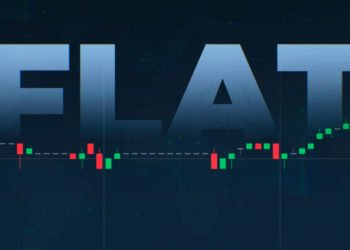In a promising development for global financial markets, the International Monetary Fund (IMF) and the World Bank are set to inject much-needed forex inflows in the coming week.
This move is expected to significantly enhance market confidence and provide crucial support to countries facing fiscal challenges.
On Tuesday, January 23, the World Bank approved a substantial US$300 million Development Policy Operation for Ghana, marking the initiation of a three-part series aimed at addressing the country’s fiscal constraints and sustaining its economic recovery momentum.
The primary objective of this initiative is to alleviate Ghana’s fiscal challenges while simultaneously implementing reforms crucial for the nation’s long-term economic growth and transformation. The Government of Ghana, as highlighted in the World Bank’s release, remains steadfast in its commitment to restoring macroeconomic stability.
Ken Ofori-Atta, Ghana’s Minister of Finance, emphasized the pivotal role of the US$300 million Development Policy Financing in easing the country’s fiscal constraints. He stated, “The disbursement of this funding will play a vital role in easing Ghana’s fiscal constraints, sustaining the momentum of economic recovery while protecting the poor and vulnerable.”
The Initiative focuses on restoring fiscal and debt sustainability, boosting growth prospects, curbing inflation, and protecting the most vulnerable segments of the population. These measures, supported by the financing, are deemed urgent priorities for Ghana and are crucial steps to attract more foreign investment.
Additionally, they aim to revitalize the domestic private sector, enhance resilience against climate change, and improve the overall quality of life for the people of Ghana.
Ousmane Diagana, World Bank Vice President for Western and Central Africa, underscored the significance of these measures by stating, “Restoring fiscal and debt sustainability, bolstering growth prospects, curbing inflation, and protecting the most vulnerable – measures supported by this financing – are urgent priorities for Ghana.”
The injection of funds from both the IMF and the World Bank comes at a critical juncture, offering a timely boost to global market confidence. These initiatives not only address immediate fiscal challenges but also contribute to creating an environment conducive to attracting foreign investment and fostering long-term economic sustainability.
As countries navigate the complexities of the post-pandemic era, such financial support becomes instrumental in stabilizing economies and fostering growth.
Resilient Recovery Development Policy Operation
The Resilient Recovery Development Policy Operation, the initial phase of a three-part series, is set to play a pivotal role in Ghana’s economic rejuvenation. This US$300 million operation, part of the World Bank’s broader crisis response and resilience engagement, focuses on a spectrum of reforms crucial for the nation’s sustained growth.
Key aspects include strengthening domestic revenue mobilization, controlling expenditures, ensuring financial sector stability, promoting private investment, addressing energy sector challenges, fortifying the social protection system, and integrating climate adaptation and mitigation into policies.
These measures are essential for attracting foreign investment, revitalizing the domestic private sector, and enhancing resilience against climate change.
In tandem, the successful completion of the first review of Ghana’s three-year extended credit facility arrangement with the IMF resulted in the disbursement of the second tranche of US$600 million, totaling approximately US$1.2 billion disbursed. Additionally, a constructive US$5.4 billion debt negotiation with Ghana’s official creditor committee paved the way for further financial stability.
Further support from the World Bank, with a disbursement of US$250 million for the Ghana Financial Stability Fund (GFSF) aimed at addressing solvency issues in the financial sector, adds to the comprehensive strategy.
Collectively, these injections are expected to bring about a substantial FX inflow of approximately US$1.15 billion, strengthening the cedi in the foreseeable future.
However, despite recent FX liquidity injections and the positive outcome of the IMF review, the cedi faced headwinds against major trading currencies due to a stronger US dollar.
The USD Index’s robust performance, influenced by cautious signals from the Federal Reserve regarding policy rate cuts, led to a 1.60 percent weakening of the cedi against the US dollar, closing at a mid-rate of 12.53/$ on the retail market.
The local currency also experienced week-on-week declines of 1.12 percent and 1.11 percent against the GBP and Euro, respectively, on the retail market.
Meanwhile, Databank, an asset management company, noted that despite corporate demand prevailing in the FX market, the anticipated inflow from the World Bank’s operation is expected to improve market sentiment, increase supply-side intervention, and provide a cushion for the cedi in the near term.
READ ALSO: Paul Okoye’s Girlfriend, Ivy Ifeoma, Shares Her Painful Experience





















